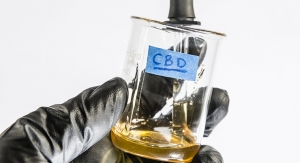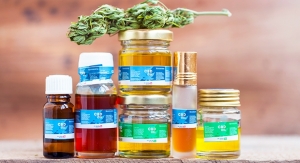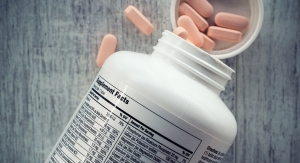By Greg Stephens, Windrose Partners & Sanford W. Bigelow, PhD, DABT, Vanguard Global Associates LLC11.05.19
In recent Business Insights columns Windrose Partners and Vanguard Global Associates have provided an overview of the U.S. regulatory requirements for food (conventional food, foods for special dietary use (FSDU), and medical foods) and dietary supplement products, whether under development or already commercialized. Two earlier columns emphasized requirements related to the regulatory pathway options and product safety requirement. In this issue, we will address the third leg of our regulatory overview: product claims.
This summary of regulatory requirements can be used to provide context in developing information to assess product composition and directions for use, product and ingredient safety, claims, regulatory status of ingredients, and the benefits resulting from the intended use of the product.
Product benefits inform consumers about the purpose of the product, provide rationale for purchase and, after initial use, hopefully a reason to believe in repeat purchase. Product benefits are articulated in the form of claims, which can be viewed as the focal point between product use, science, regulatory requirements, and consumer choice. Once product claims are developed based on health benefit, product developers can find a clear pathway to product commercialization. This involves assembling information needed to satisfy regulatory requirements. Some of the information (e.g., regarding claims) can be used to support sales activities and optimize the market opportunity.
Regulatory Overview
As previously addressed, the primary regulatory categories of food products regulated by the U.S. Food and Drug Administration (FDA) are: conventional food, dietary supplements, foods for special dietary use, and medical foods. These categories are relevant to provide perspective in distinguishing the claims substantiation requirements.
Developing Claims Substantiation
FDA and the U.S. Federal Trade Commission (FTC) work together to regulate the food, medical food, and dietary supplement industries. For these products, the FTC regulates advertising and FDA regulates labeling for food and supplement products. Advertising is viewed as product representations made beyond labeling. The intended use of a product is largely determined by use and composition, claims made on the product label, in collateral labeling, and in other promotional materials such as advertising.
Labeling is defined as labels and other written, printed, or graphic matter upon any article (product) or any of its containers or wrappers, or matter accompanying the sale of the product. For dietary supplements and foods in general, claims, statements, and representations need to be truthful, not misleading, and substantiated, and must reveal facts that are material to the representations made. Foods, dietary supplements, foods for special dietary use, and medical foods are all capable of affecting the structure and function of the human body, and as such, are excluded from the definition of drugs.
Advertising claims for foods are regulated by the FTC. The FTC does not determine whether claims classify the product as a drug, food, device, or cosmetic product (which is FDA’s responsibility), yet the FTC is responsible for regulating whether the claims are adequately substantiated prior to advertising.
According to FTC guidance for advertising claims made for food and dietary supplement products (FTC 1994, 1998, 2001), advertising claims must not be false or misleading, and must be substantiated at the time they are made. Advertisers are required to have a reasonable basis for concluding that advertising claims are accurate, and that representations of claims made in advertising have a particular level of substantiation.
For many claims (i.e., objective claims) made in advertising (FTC 1994, 1998, 2001), the advertiser needs competent and reliable scientific evidence, including tests, analyses, research, studies, or other evidence based on the expertise of professionals in the relevant area. Evidence should be evaluated in an objective manner by persons qualified to do so, using procedures generally accepted by the profession to yield accurate and reliable results.
The level of substantiation depends on a number of issues, commonly referred to as the Pfizer factors: the type of claim, the product, the consequences of a false claim, the benefits of a truthful claim, the costs for developing substantiation for the claim, and the amount of substantiation experts in the field believe is reasonable. The FTC uses these factors to determine whether a reasonable basis exists for advertising claims for food, medical food, and supplement products.
Types of Claims Made in Product Labeling
Companies may make the following types of health-related claims in food and supplement product labeling: structure/function claims, health claims, medical food claims, and nutrient content claims.
Structure/function claims describe the relationship between the ingestion of a food or food component (e.g., nutrient) and how it affects the structure and function of the body (e.g., “calcium builds strong bones”). FDA has recognized structure/function claims for conventional foods since before the 1960s, well before enactment of the Nutrition Labeling and Education Act (NLEA) and the Dietary Supplement Health and Education Act (DSHEA).
Health claims may also describe the relationship between the ingestion of a food component of nutritive value and the risk of a prevalent disease or a health-related condition, and must be approved by
the FDA.
Medical food claims encompass the specific dietary management of general outcomes and/or specific clinical endpoint(s) associated with disease(s) possessing distinctive nutritional requirements. Nutrient content claims are made on all categories of food products that, per serving, describe the level of a nutrient including vitamins and minerals with established daily requirements for dietary intake; nutrient content claims must be approved by the FDA.
Food and dietary supplement marketers are allowed to make structure/function claims in product labeling without obtaining FDA approval. Truthful and not misleading structure/function claims that describe the role of a nutrient or dietary ingredient to maintain such structure or function, in and of themselves, and made in the proper context, are acceptable for use in labeling.
Requirements for Claims Related to Nutrient Action
Generally speaking, the quality and quantity of the evidence must match the nature and specificity of the claim. The action of nutrients used as ingredients in products can be attributed to their nutritive value. Nutritive value is often considered as a regulatory basis for adding such ingredients to food products (i.e., for its technical effect). As opposed to any pharmacological effect, foods are typically used for their taste, aroma, or nutritive value, although other foods such as coffee and prune juice may be used for other purposes (Nutrilab v. Schweicker, 713F, 2d 335, 338 (7th Cir. 1983)).
Dietary supplements, foods for special dietary use, and medical foods are typically not used for their taste and aroma but can be used for their nutritive value. Nutritive value often serves as the basis for distinguishing the use of a product as a food or dietary supplement versus its use as a drug. The FDA (1993) has defined nutritive value, as follows: “... a value in sustaining human existence by such processes as promoting growth, replacing loss of essential nutrients, or providing energy.”
Both the FTC and FDA require that claims be substantiated, yet these agencies typically do not specify the exact quality and quantity of evidence, and they provide a flexible approach for manufacturers to develop evidence to support particular claims made in product labeling.
FDA and FTC will consider all relevant information in their review of evidence that supports claims. Generally accepted scientific and statistical principles should be used to determine the quality of the studies used as evidence to substantiate a claim.
Consistent with the statutory and regulatory definitions of medical foods, their use is established by medical evaluation (e.g., clinical research) based on recognized scientific principles (such as reproducibility based on repeated findings, validated primary clinical measure based on biologically relevant endpoints, reliable analytical tests, etc.).
The FDA has provided sufficient latitude for manufacturers to design and conduct clinical tests in their effort to substantiate product claims. FDA (2002) issued guidance for industry to consider the following factors in substantiating claims made in labeling: 1) the meaning of the claim(s), 2) the relationship of the evidence to the claim, 3) the quality of the evidence; and 4) the totality of the evidence. It is important to understand the meaning of the claim to the consumer, as manufacturers need to substantiate statements before commercialization.
On many occasions, in guidance and in enforcement actions, FTC and FDA have elaborated on the scientific parameters for designing and conducting clinical studies needed to substantiate claims. The studies being used as substantiation for product claims need to adequately identify and characterize that the product used in studies is relevant to its conditions of use by consumers.
The quality of the scientific studies is based on several criteria including generally accepted scientific principles, appropriate study population, study design and conduct (e.g., presence of a placebo control), adequate duration to measure the effect(s) of interest, data collection, statistical analysis, and outcome measures. When such studies address this criteria, they can be considered of high quality.
The FDA and FTC “gold standard” for clinical evidence is the randomized, double-blind, placebo-controlled clinical trial design, yet employing such study designs is not a regulatory requirement. Other studies, including in vitro and animal studies, can be helpful to define the mechanism of nutrient action and can augment the clinical findings.
In determining whether there is adequate evidence to substantiate a claim, FDA (2008) has asserted in guidance that one should consider the strength of the entire body of evidence, including criteria such as quality, quantity (i.e., number of various types of studies and subject sample sizes), relevance of exposure, and consistency and replication of the findings.
To determine whether the available scientific evidence is adequate to substantiate a claim, it is important to consider all relevant research, both favorable and unfavorable, and conclude that, on balance, the claim can be substantiated by the scientific evidence. The “weight of the evidence” approach (evaluating both supporting and contradictory findings) is favored by the FDA compared to the “strength of the evidence” approach (i.e., relying on supporting findings only). Conflicting or inconsistent results may raise questions as to whether a particular claim is adequately substantiated, unless a plausible explanation of the issues is provided, such as flaws in the design of a study with an unfavorable finding.
Product claims serve to provide consumers and healthcare professionals with information to help determine which products are most appropriate. The quality and quantity of clinical research supporting nutritional products have increased significantly over the last decade. Substantiated by this research, the quality of product clams has improved as well, leading to both increased consumer awareness and greater product knowledge by healthcare professionals.
With that said, the risk of pushing clams beyond the scope of the substantiating research is no longer limited to simply receiving an FDA “Warning Letter.” Recent class action litigation and other civil suits (e.g., brought by state attorneys general) have created a significant financial risk to companies. Thus, the investment in clinical research, implementing sound regulatory practices, GMP manufacturing, and drafting well substantiated label claims will continue to drive strong category growth.
References
This summary of regulatory requirements can be used to provide context in developing information to assess product composition and directions for use, product and ingredient safety, claims, regulatory status of ingredients, and the benefits resulting from the intended use of the product.
Product benefits inform consumers about the purpose of the product, provide rationale for purchase and, after initial use, hopefully a reason to believe in repeat purchase. Product benefits are articulated in the form of claims, which can be viewed as the focal point between product use, science, regulatory requirements, and consumer choice. Once product claims are developed based on health benefit, product developers can find a clear pathway to product commercialization. This involves assembling information needed to satisfy regulatory requirements. Some of the information (e.g., regarding claims) can be used to support sales activities and optimize the market opportunity.
Regulatory Overview
As previously addressed, the primary regulatory categories of food products regulated by the U.S. Food and Drug Administration (FDA) are: conventional food, dietary supplements, foods for special dietary use, and medical foods. These categories are relevant to provide perspective in distinguishing the claims substantiation requirements.
Developing Claims Substantiation
FDA and the U.S. Federal Trade Commission (FTC) work together to regulate the food, medical food, and dietary supplement industries. For these products, the FTC regulates advertising and FDA regulates labeling for food and supplement products. Advertising is viewed as product representations made beyond labeling. The intended use of a product is largely determined by use and composition, claims made on the product label, in collateral labeling, and in other promotional materials such as advertising.
Labeling is defined as labels and other written, printed, or graphic matter upon any article (product) or any of its containers or wrappers, or matter accompanying the sale of the product. For dietary supplements and foods in general, claims, statements, and representations need to be truthful, not misleading, and substantiated, and must reveal facts that are material to the representations made. Foods, dietary supplements, foods for special dietary use, and medical foods are all capable of affecting the structure and function of the human body, and as such, are excluded from the definition of drugs.
Advertising claims for foods are regulated by the FTC. The FTC does not determine whether claims classify the product as a drug, food, device, or cosmetic product (which is FDA’s responsibility), yet the FTC is responsible for regulating whether the claims are adequately substantiated prior to advertising.
According to FTC guidance for advertising claims made for food and dietary supplement products (FTC 1994, 1998, 2001), advertising claims must not be false or misleading, and must be substantiated at the time they are made. Advertisers are required to have a reasonable basis for concluding that advertising claims are accurate, and that representations of claims made in advertising have a particular level of substantiation.
For many claims (i.e., objective claims) made in advertising (FTC 1994, 1998, 2001), the advertiser needs competent and reliable scientific evidence, including tests, analyses, research, studies, or other evidence based on the expertise of professionals in the relevant area. Evidence should be evaluated in an objective manner by persons qualified to do so, using procedures generally accepted by the profession to yield accurate and reliable results.
The level of substantiation depends on a number of issues, commonly referred to as the Pfizer factors: the type of claim, the product, the consequences of a false claim, the benefits of a truthful claim, the costs for developing substantiation for the claim, and the amount of substantiation experts in the field believe is reasonable. The FTC uses these factors to determine whether a reasonable basis exists for advertising claims for food, medical food, and supplement products.
Types of Claims Made in Product Labeling
Companies may make the following types of health-related claims in food and supplement product labeling: structure/function claims, health claims, medical food claims, and nutrient content claims.
Structure/function claims describe the relationship between the ingestion of a food or food component (e.g., nutrient) and how it affects the structure and function of the body (e.g., “calcium builds strong bones”). FDA has recognized structure/function claims for conventional foods since before the 1960s, well before enactment of the Nutrition Labeling and Education Act (NLEA) and the Dietary Supplement Health and Education Act (DSHEA).
Health claims may also describe the relationship between the ingestion of a food component of nutritive value and the risk of a prevalent disease or a health-related condition, and must be approved by
the FDA.
Medical food claims encompass the specific dietary management of general outcomes and/or specific clinical endpoint(s) associated with disease(s) possessing distinctive nutritional requirements. Nutrient content claims are made on all categories of food products that, per serving, describe the level of a nutrient including vitamins and minerals with established daily requirements for dietary intake; nutrient content claims must be approved by the FDA.
Food and dietary supplement marketers are allowed to make structure/function claims in product labeling without obtaining FDA approval. Truthful and not misleading structure/function claims that describe the role of a nutrient or dietary ingredient to maintain such structure or function, in and of themselves, and made in the proper context, are acceptable for use in labeling.
Requirements for Claims Related to Nutrient Action
Generally speaking, the quality and quantity of the evidence must match the nature and specificity of the claim. The action of nutrients used as ingredients in products can be attributed to their nutritive value. Nutritive value is often considered as a regulatory basis for adding such ingredients to food products (i.e., for its technical effect). As opposed to any pharmacological effect, foods are typically used for their taste, aroma, or nutritive value, although other foods such as coffee and prune juice may be used for other purposes (Nutrilab v. Schweicker, 713F, 2d 335, 338 (7th Cir. 1983)).
Dietary supplements, foods for special dietary use, and medical foods are typically not used for their taste and aroma but can be used for their nutritive value. Nutritive value often serves as the basis for distinguishing the use of a product as a food or dietary supplement versus its use as a drug. The FDA (1993) has defined nutritive value, as follows: “... a value in sustaining human existence by such processes as promoting growth, replacing loss of essential nutrients, or providing energy.”
Both the FTC and FDA require that claims be substantiated, yet these agencies typically do not specify the exact quality and quantity of evidence, and they provide a flexible approach for manufacturers to develop evidence to support particular claims made in product labeling.
FDA and FTC will consider all relevant information in their review of evidence that supports claims. Generally accepted scientific and statistical principles should be used to determine the quality of the studies used as evidence to substantiate a claim.
Consistent with the statutory and regulatory definitions of medical foods, their use is established by medical evaluation (e.g., clinical research) based on recognized scientific principles (such as reproducibility based on repeated findings, validated primary clinical measure based on biologically relevant endpoints, reliable analytical tests, etc.).
The FDA has provided sufficient latitude for manufacturers to design and conduct clinical tests in their effort to substantiate product claims. FDA (2002) issued guidance for industry to consider the following factors in substantiating claims made in labeling: 1) the meaning of the claim(s), 2) the relationship of the evidence to the claim, 3) the quality of the evidence; and 4) the totality of the evidence. It is important to understand the meaning of the claim to the consumer, as manufacturers need to substantiate statements before commercialization.
On many occasions, in guidance and in enforcement actions, FTC and FDA have elaborated on the scientific parameters for designing and conducting clinical studies needed to substantiate claims. The studies being used as substantiation for product claims need to adequately identify and characterize that the product used in studies is relevant to its conditions of use by consumers.
The quality of the scientific studies is based on several criteria including generally accepted scientific principles, appropriate study population, study design and conduct (e.g., presence of a placebo control), adequate duration to measure the effect(s) of interest, data collection, statistical analysis, and outcome measures. When such studies address this criteria, they can be considered of high quality.
The FDA and FTC “gold standard” for clinical evidence is the randomized, double-blind, placebo-controlled clinical trial design, yet employing such study designs is not a regulatory requirement. Other studies, including in vitro and animal studies, can be helpful to define the mechanism of nutrient action and can augment the clinical findings.
In determining whether there is adequate evidence to substantiate a claim, FDA (2008) has asserted in guidance that one should consider the strength of the entire body of evidence, including criteria such as quality, quantity (i.e., number of various types of studies and subject sample sizes), relevance of exposure, and consistency and replication of the findings.
To determine whether the available scientific evidence is adequate to substantiate a claim, it is important to consider all relevant research, both favorable and unfavorable, and conclude that, on balance, the claim can be substantiated by the scientific evidence. The “weight of the evidence” approach (evaluating both supporting and contradictory findings) is favored by the FDA compared to the “strength of the evidence” approach (i.e., relying on supporting findings only). Conflicting or inconsistent results may raise questions as to whether a particular claim is adequately substantiated, unless a plausible explanation of the issues is provided, such as flaws in the design of a study with an unfavorable finding.
Product claims serve to provide consumers and healthcare professionals with information to help determine which products are most appropriate. The quality and quantity of clinical research supporting nutritional products have increased significantly over the last decade. Substantiated by this research, the quality of product clams has improved as well, leading to both increased consumer awareness and greater product knowledge by healthcare professionals.
With that said, the risk of pushing clams beyond the scope of the substantiating research is no longer limited to simply receiving an FDA “Warning Letter.” Recent class action litigation and other civil suits (e.g., brought by state attorneys general) have created a significant financial risk to companies. Thus, the investment in clinical research, implementing sound regulatory practices, GMP manufacturing, and drafting well substantiated label claims will continue to drive strong category growth.
References
- FDA 1993. Nutrition Labeling and Education Act. Final Rule. 58 Federal Register 2079 (January 6, 1993).
- FDA 2002. Structure Functions Claims. found at https://www.fda.gov/food/food-labeling-nutrition/structurefunction-claims, and found at: Small Entity Compliance Guide on Structure/Function Claims https://www.fda.gov/regulatory-information/search-fda-guidance-documents/small-entity-compliance-guide-structurefunction-claims, January 2002.
- FDA 2014. Food Allergens. https://www.fda.gov/food/food-ingredients-packaging/food-allergens. Accessed March 28, 2016.
- FTC 1994. Enforcement Policy Statement on Food Advertising, May 1994. Federal Trade Commission, Washington, DC.; 59 Federal Register 28388; June 1, 1994.
- FTC 1998. Dietary Supplements: An Advertising Guide for Industry, Bureau of Consumer Protection, Federal Trade Commission, 26 pp.
- FTC 2001. Dietary Supplements: An Advertising Guide for Industry, Bureau of Consumer Protection, Federal Trade Commission, pp. 32. NW



























